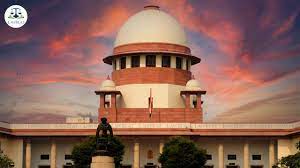If Jain, Sikhs, Buddhists allowed to run education institutions, why not Muslims? SLP challenges striking down of UP Madarsa Act

The high court observed that it was clearly established that education under the Madarsa Act is certainly not equivalent to the education being imparted to the students of other regular educational institutions recognized by the State Primary and High School and Intermediate Boards
A Special Leave Petition has been filed in the Supreme Court of India challenging the Allahabad High Court’s judgement striking down the Uttar Pradesh Board of Madarsa Education Act 2004 as unconstitutional.
The SLP has been filed by one Anjum Kadari through Advocate Sanjeev Malhotra challenging the high court’s judgement which struck down the act on the ground that the act is on the ground that the act is against the principles of secularism and articles 14, 21, 21A of the Indian Constitution.
A division bench of the high court comprising Justice Vivek Chaudary and Justice Subhash Vidyarthi passed the judgement in a petition filed by one Anushuman Singh Rathore who challenged the constitutionality of the UP Madarsa State Board Act 2004 and provisions of the Right of Children of Free and Compulsory Education Act 2012.
Additionally, the high court observed that it was clearly established that education under the Madarsa Act is certainly not equivalent to the education being imparted to the students of other regular educational institutions recognized by the State Primary and High School and Intermediate Boards and, therefore, the educations being imparted in Madarsas is neither ‘quality’ nor ‘universal’ in nature.
The high court further said that it is not mandatory for a citizen of this country to be secular by nature and a citizen can have faith in his own religion or in some/every religion or may not have faith in any religion.
“However, the State cannot do so. The State has to remain secular. It must respect and treat all religions equally. The State cannot, in any manner whatsoever, discriminate between religions while performing its duties. Since providing education is one of the primary duties of the State, it is bound to remain secular while exercising its powers in the said field. It cannot provide for education of a particular religion, its instructions, prescriptions and philosophies or create separate education systems for separate religions,” the judgment reads.
The high court also observed that While the students of all other religions are getting educated in all modern subjects denial of the same quality by the Madarsa Board amounts to a violation of both Article 21-A as well as Article 21 of the Constitution of India.
“The Act further provides the Board to function under the Minority Welfare Ministry of State of U.P., hence, a question arises as to whether it is arbitrary for providing the Madarsa education to be run under the Minority Welfare Department while all the other education institutions including those belonging to other minorities communities like Jains, Sikhs, Christians etc being run under the Education Ministry and whether it arbitrarily denies the benefit of experts of education and their policies to the children studying in Madarsa?,” the plea avers.
Case title: Arjun Kadari & Anr vs UOI
